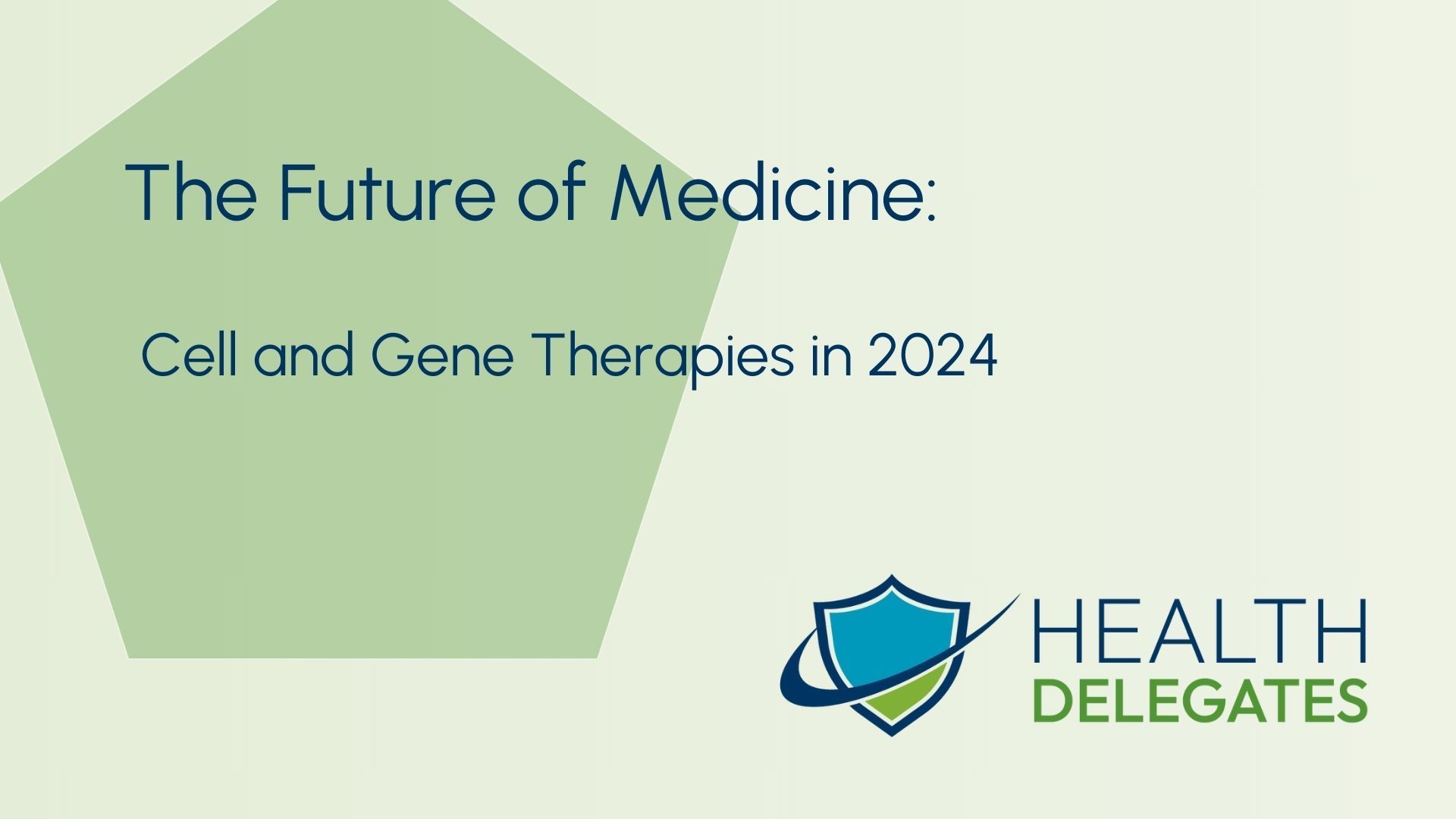The Future of Medicine: Cell and Gene Therapies in 2024

Introduction to Cell and Gene Therapies
Cell and gene therapies represent a frontier in medical innovation, offering new hope for diseases once deemed incurable. These advanced treatments involve altering the genetic material within a patient's cells to treat or prevent disease. In 2024, we are witnessing an unprecedented era in these therapies, marked by rapid advancements and increasing clinical applications.
The Essence of CGTs
Cell therapy involves the transplantation of living cells into a patient to replace or repair damaged tissue or cells. Gene therapy, on the other hand, involves modifying the genetic material within a patient's cells to treat or prevent disease. Together, these therapies offer a new paradigm in medicine – treating the root cause of diseases at the molecular level.
The Evolution of CGTs
Since the first successful gene therapy trials in the 1990s, the field has evolved dramatically. Early challenges, such as immune reactions and questions about efficacy, have given way to a new era of sophisticated techniques and a better understanding of genetic mechanisms. Recent advancements have been bolstered by parallel developments in technologies like CRISPR-Cas9, which allows for precise editing of the genome.
Advances in Gene Therapy and AI Integration
Breakthroughs in Gene Therapy
In 2023, the gene therapy field witnessed significant advancements, notably with the FDA approval of cell-based gene therapies for treating sickle cell disease. These therapies, Casgevy and Lyfegenia, signify a monumental leap, particularly with Casgevy being the first CRISPR-based therapy to receive FDA approval. This approval not only represents a breakthrough in treating sickle cell disease but also paves the way for genome editing technologies to treat a wide range of genetic disorders.
AI's Transformative Role
AI is significantly advancing gene therapy development. It plays a critical role in creating personalized treatment plans by analyzing individual genetic biomarkers. This personalized approach is essential for treating rare diseases, where one-size-fits-all solutions are ineffective. AI-driven bioinformatics and genetic sequencing are enabling more targeted and effective therapies, tailored to each patient's unique genetic makeup.
The Rising Success of CAR-T Cell Therapy
CAR-T cell therapy, a form of immunotherapy that uses modified T cells to attack cancer, has shown remarkable success, particularly in treating blood cancers. This therapy involves reengineering a patient's own immune cells to recognize and destroy cancer cells. In 2024, there's an expectation that the application of CAR-T cell therapy will extend beyond blood cancers to solid tumors, like colon and ovarian cancer. This expansion highlights the potential of cell therapies in treating a diverse range of diseases.
The Expanding Horizons of CAR-T
The success of CAR-T cell therapy in blood cancers has been a beacon of hope and a clear demonstration of the power of cellular immunotherapy. The transition into treating solid tumors is a complex endeavor due to the different nature of these cancers compared to blood cancers. However, ongoing research and clinical trials are showing promising results, potentially revolutionizing the treatment of solid tumors.
Managing Costs and Innovative Payment Models
Tackling High Costs
One of the primary challenges with CGTs is their high cost, driven by complex manufacturing processes and the personalized nature of these treatments. This presents a significant barrier to accessibility, making it difficult for many patients to afford these life-saving therapies.
Innovative Payment Solutions
To mitigate these financial challenges, innovative payment models are being explored. These include outcomes-based payments, where a portion of the therapy cost is covered upfront and the remainder is paid if the therapy achieves specific outcomes. Other models include rebates for therapies that fail to meet predefined outcomes and annuities spread over multiple payments, contingent on continued therapeutic efficacy.
The Future Landscape of CGTs
Broadening Therapeutic Applications
CGTs are not limited to genetic diseases and cancers. Researchers are exploring their applications in metabolic, genetic, and central nervous system disorders. Most of these applications are in early stages, but they hold the promise of expanding the range of treatable conditions significantly.
Market Growth and Challenges
The global market for CGTs is expected to see substantial growth, with projections of significant sales by 2029. Oncology is expected to continue leading the development of CGTs. Despite this growth, the field faces ongoing challenges such as high development costs, clinical trial failures, and increasing pricing pressures. Addressing these issues is crucial for realizing the full potential of CGTs.
The landscape of cell and gene therapies in 2024 is one of rapid advancement and significant potential. These therapies are on the brink of transforming medicine, offering new treatments for a range of diseases. The integration of AI and innovative payment models are key to overcoming current challenges, and the future of these therapies is bright with the potential to treat diseases more effectively and personally than ever before.
Subscribe for additional news in healthcare innovation
As we stand on the cusp of a new era in healthcare, the journey of cell and gene therapies is just beginning. The advancements in 2024 and beyond promise not just to transform our industry, but to redefine what is possible in the treatment of previously incurable diseases. However, the true power of this revolution lies in our ability to share, learn, and grow together. If you're as inspired by the potential of these therapies as we are, and you're eager to stay at the forefront of this groundbreaking field, we invite you to join our community. Subscribe to Health Delegates and follow us for more insightful updates, cutting-edge research findings, and insight on innovation. Together, let's embark on this exciting journey into the future of healthcare, where every discovery brings us closer to a world of healthier possibilities. Don't miss out on the next breakthrough—subscribe and follow us today for a future where innovation and partnership know no bounds.
Subscribe for Exclusive Industry Insights
Contact Us











